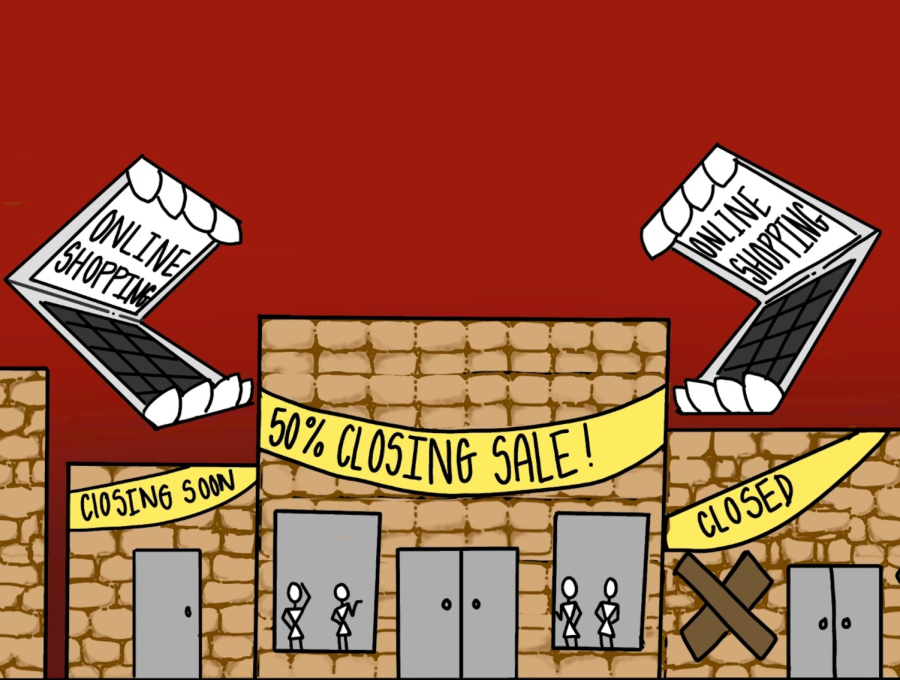Brick and Mortar Stores Should Remain a Staple of the Consumer Model
Online marketplaces have been steadily accelerating in scope, with over 431.4 billion dollars worth of sales being on the internet in 2022, according to Forbes. Despite seeming like a positive, this shift has caused innumerable destruction to physical stores.
Party City. The Disney Store. Toys “R” Us. What do these stores all have in common? They all fell victim to the epidemic of online shopping: their physical locations removed, their operations reduced to a private business model (Party City), an online-only format (Disney) or even a complete bankruptcy of the brand (Toys “R” Us).
These three stores were crucial cornerstones of my childhood, creating core memories and iconic moments that I wish I could return to. However, due to the rise of digitally-based corporations (such as Amazon) and the onset of the COVID-19 pandemic, novelty stores have quickly succumbed to closures and, oftentimes, bankruptcy, according to Business Insider.
Online shopping only helps perpetuate the dark feelings of isolation the pandemic created by reducing opportunities for people to connect with each other.
Consumers must continue to invest in in-store shopping, as many tangible benefits of the in-store experience cannot be recreated digitally.
Customers choose to shop in-person rather than online due to the simple fact that in person they can see the exact product they are purchasing, according to Archer Point. Being able to physically interact with the item reduces customer doubts and leads to a lower likelihood of the product eventually being returned.
Additionally, many of these closed stores relied on unique tactics to sell their products — ones that are not as effective virtually. For example, every physical Disney Store in the United States had a film screen inside playing classic Disney songs and a castle so children could feel they were royalty themselves. During the Halloween season, the aisles of Party City would be littered with skeletal jumpscares meant to give children a small taste of the holiday.
Websites simply cannot provide the unique experiences that sparked such vivid memories in me as a child, nor the presence of face-to-face human interaction that helps bring people closer together.
Some people may believe online shopping to be a vastly superior method as it is arguably a more efficient system, increasing its convenience, according to Jungle Scout. But regardless of this claim, online stores typically feature supplemental costs (such as shipping and processing fees) that ultimately hinder the shopping experience and create a hassle for consumers.
In the end, the influx of virtual business models should not be used as a vehicle to hunt down physical stores; rather, consumers should make a conscious effort to support these businesses to contribute to both the stores’ fiscal health and their own shopping experiences.
Your donation will support the student journalists of Portola High School. Your contribution will allow us to purchase equipment and cover our annual website hosting costs.

Tara Vatandoust is an Editor-in-Chief for her third, and sadly, final year on the Portola Pilot. This year, she is looking forward to (finally!) being...

Shaina Taebi is the Backpage Editor for her third year in the Portola Pilot. For her final year she is excited to spend class time drawing more editorial...




